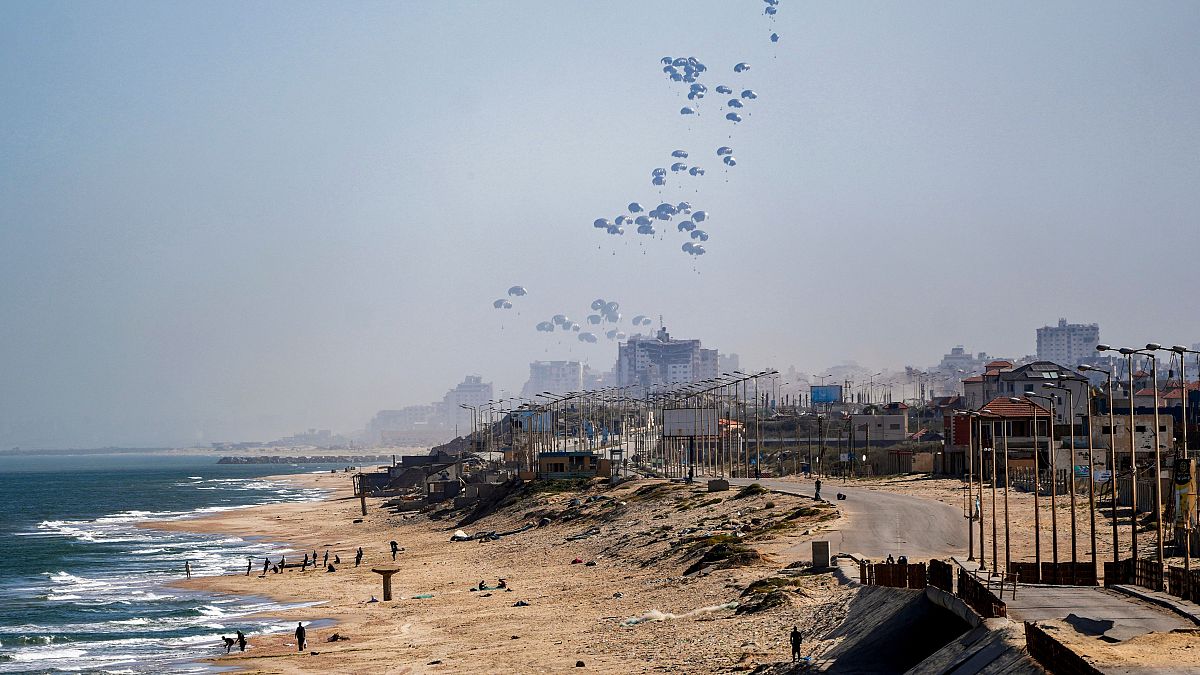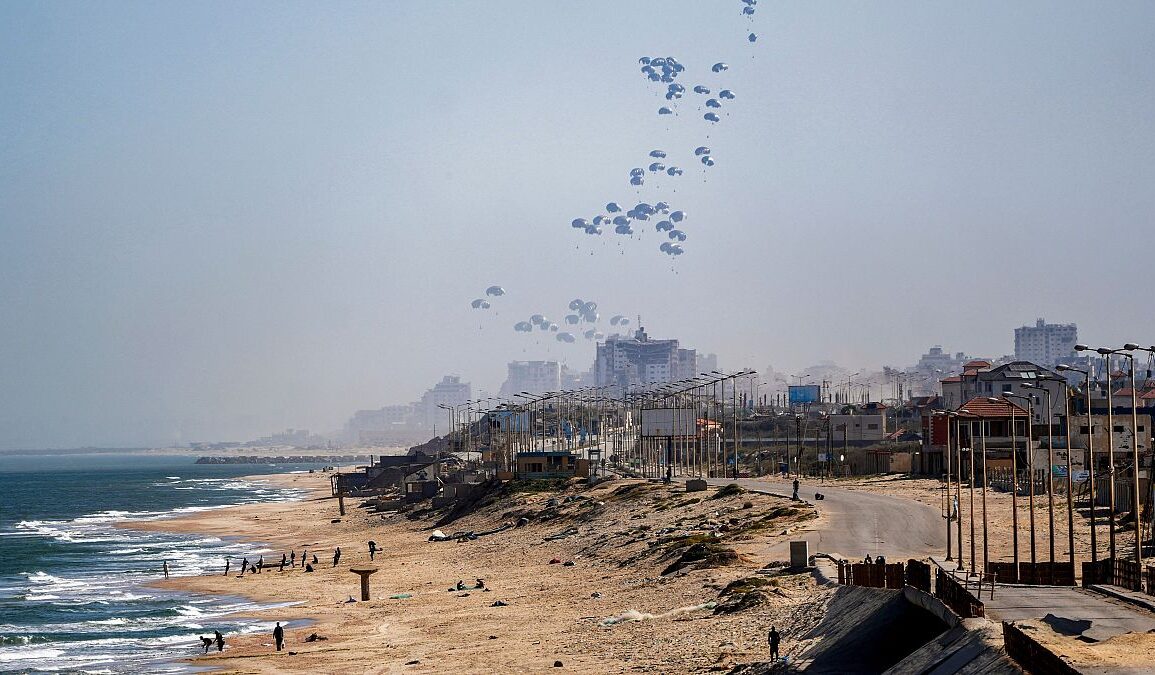
In early August, the Israel Defense Forces (IDF) air-dropped cigarettes over the Gaza Strip. Attached were leaflets bearing messages like: “Smoking is dangerous, but Hamas is more dangerous.” It must have been like gold falling from the sky.
At this moment cigarettes are both contraband and currency in Gaza. Historically, Hamas has alternately banned tobacco products or taxed them heartily. But the unregulated cigarette market surged when the Israel-Hamas war began in October 2023. Closed borders saw the price of Royal cigarettes, the preferred brand imported from Egypt, go from $0.70 USD to around $30 per cigarette. According to local reporters, many people are trying to smoke dried leaves because—while this does not produce the desired effect—“unfortunately, there’s no other solution.”
About one in three men in Gaza are estimated to use combustible tobacco. When the supply is controlled by greedy merchants in a time of shortage, prices will be inflated. Hamas has similarly inflated prices for basic food and humanitarian aid packages. What else can people do but pay for as long as they can?
In addition to searching essential supply trucks for contraband tobacco being smuggled in, Hamas also takes a hefty cut—reportedly 50 percent—of each legal tobacco shipment. So civilians without any political or ideological allegiance to Hamas, subjected to the IDF onslaught for close to a year now, must subsidize their ongoing oppression in order to make life slightly more bearable in the moment. The IDF cigarette drop appears to have been a one-time occurrence.
Here in the Georgia Department of Corrections (GDC) prison system, supplies are air-dropped to us quite often.
Pair of federal indictments charge conspiracies to use drones to deliver illegal drugs, contraband cell phones to Georgia prisons@DEAHQ @DEAATLANTADiv @JessSzilagyiTGV @eveyww @Georgia_AG @GA_Corrections https://t.co/iKZC4FFMFi
— U.S. Attorney SDGA (@SDGAnews) August 21, 2024
United States prisons are also captive markets of people who smoke heavily. In the 2000s when US prisons started banning tobacco—which long functioned as prison currency, and still does in many places there was an abundance of corrections officers to hunt for contraband. Sunday nights the prisoners who were bringing in tobacco would have fire sales, to mitigate losses from shakedowns during the coming work week.
Today, with half the corrections officer posts abandoned since the onset of the COVID-19 pandemic, the tobacco supply is unchecked and so are the price hikes. A tiny plastic cup, the kind made for dispensing medication, containing just 15cc of tobacco goes for $25. That’s about two commercial cigarettes, or six prison cigarettes on a good day.
These are the kinds of conditions that lead desperate people to smoke plausible-looking plant matter, out of yearning for not just the physical component but the ritualistic one too. In prisons, dried banana-peel strings or other kitchen scraps are commonly salvaged in an effort to stretch a pinch of tobacco as far as it’ll go.
Living each day immersed in both violence and deprivation, and with the looming specter of death around every corner, tobacco becomes indispensable. If we have a cigarette to rise to in the morning, we feel hope that the new day can be better. Grief, hunger, bewilderment—all are held in check for a few moments, a feat that the breakfast here will never accomplish.
Prisoners often must choose between outrageously priced contraband tobacco and outrageously overpriced food sold at commissary.
Private vendors contracted by GDC control the prices on the food packages—the only other supply line of edible food we’re allowed to receive. They charge fees that amount to taxation on every dollar sent to us through formal channels. GDC helps itself to a 50-percent cut, while conducting searches for contraband like tobacco and cell phones—which is to say, streams of revenue that the department doesn’t control.
Of course, if GDC or any US prison system wanted to capture that revenue without exacerbating the prisoner population’s risk of lung cancer and other conditions we don’t get screened for, they’d busy themselves with getting legislators onboard with selling us overpriced vapes at commissary. GDC would profit, vendors would profit, prisoners would suffer less withdrawal and prisons overall would be less violent.
Of course, the idea may not appeal people to the underpaid corrections officers doubling their monthly earnings by bringing in cigarettes, or cell phones or whatever’s lucrative. But war profiteering is one of the more reliable professions on the planet. They’ll find another way.
Photograph of Gaza Strip via United States Representative Chellie Pingree
This post was originally published on this site be sure to check out more of their content.









